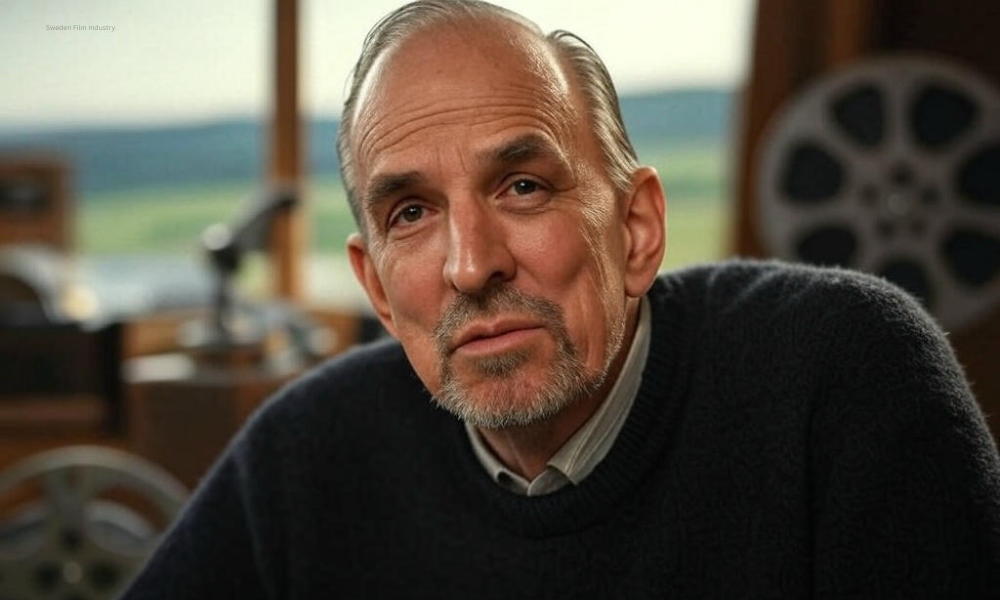Sweden Film Industry: A Deep Dive into History, Influence, and the Modern Era

What Makes the Sweden Film Industry Unique?
If you’re curious about why the Sweden film industry stands out in the global cinema landscape, here’s your answer up front: Sweden is a powerhouse of artistic storytelling, driven by legendary filmmakers, strong government support, and a deep cultural appreciation for cinema. This unique blend has led to the creation of timeless films that continue to influence international audiences.
Let’s dive deeper into the heartbeat of Swedish cinema.
Table of Contents
Quick Answer: What is the Sweden Film Industry Known For?
- Pioneering contributions to silent films
- Legendary directors like Ingmar Bergman
- Artistic and philosophical themes
- Strong government support for film production
- Globally recognized film festivals
- Oscar-winning directors like Ruben Östlund
Simply put, the Sweden film industry is globally respected for its quality, consistency, and cultural impact.
A Historical Look at the Sweden Film Industry
The Silent Film Era (1900s–1920s)
Swedish cinema first gained attention during the silent era with directors like Victor Sjöström and Mauritz Stiller. Their films, such as The Phantom Carriage (1921), were known for innovative storytelling and visual artistry. Sweden’s natural landscapes became a signature backdrop in many films of this time.
Golden Age of Swedish Cinema (1940s–1960s)
This period marked a boom in creativity. Swedish cinema began exploring deeper human emotions, morality, and social themes. The groundwork was laid for auteurs to create meaningful cinema that resonated globally.
The Ingmar Bergman Legacy
If there’s one name forever linked to the Sweden film industry, it’s Ingmar Bergman. With films like The Seventh Seal and Persona, Bergman explored existential questions and human suffering. His work shaped not just Swedish cinema but global film theory.
Key Figures Who Shaped Swedish Cinema
Ingmar Bergman
The godfather of Swedish cinema, Bergman’s introspective style set a benchmark for serious filmmaking. His ability to blend philosophy with visual storytelling inspired filmmakers like Woody Allen and Andrei Tarkovsky.
Ruben Östlund
Modern Swedish cinema is represented globally by Ruben Östlund. His Palme d’Or-winning films The Square and Triangle of Sadness examine human behavior through a satirical lens.
Lasse Hallström and Lukas Moodysson
Lasse Hallström directed international hits like My Life as a Dog and What’s Eating Gilbert Grape. Lukas Moodysson, known for Together and Fucking Åmål, adds a bold, emotional touch to Swedish cinema.
Institutions Behind the Sweden Film Industry
The Swedish Film Institute
Founded in 1963, this institute plays a vital role in funding and promoting Swedish films. It ensures that diverse stories, both mainstream and independent, find a place on screen.
Government Funding and Film Policies
The Swedish government strongly supports the arts. Filmmakers receive grants and subsidies, making Sweden one of the best countries to produce films with creative freedom and financial backing.
Sweden’s Contribution to Global Cinema
International Awards and Recognition
Sweden has been home to multiple Academy Award nominees and winners. Ingmar Bergman received several Oscar nominations, and Ruben Östlund brought home two Palme d’Or awards.
Influence on Filmmaking Styles Worldwide
Sweden’s emotional depth and minimalist approach to cinema have influenced international directors across Europe and Hollywood. The nation’s focus on realism, introspection, and humanism is widely admired.
The Modern Sweden Film Industry
Top Modern Films and Directors
Recent hits like Force Majeure, Border, and The Square showcase the evolution of Swedish cinema. New-age directors are experimenting with genre, visuals, and cultural themes.
Popular Genres in Sweden
Sweden is known for psychological dramas, dark comedies, and crime thrillers (like the Millennium Trilogy featuring Lisbeth Salander). These genres reflect Sweden’s flair for intense and thought-provoking storytelling.
Sweden’s Film Festivals and Events
Göteborg Film Festival
As the largest film festival in Scandinavia, Göteborg brings together local and international talent. It’s a launchpad for new films and rising stars in the Sweden film industry.
Stockholm International Film Festival
Focusing on bold and groundbreaking cinema, this festival champions new voices and avant-garde styles, keeping the Swedish film scene fresh and diverse.
Role of Streaming and Digital Platforms
Swedish films have found a new audience through platforms like Netflix and Viaplay. Series like Snabba Cash and Young Royals have captured international attention, boosting the global visibility of Swedish content.
Challenges Faced by the Sweden Film Industry
Despite its many strengths, the industry faces issues like:
- Limited budgets compared to Hollywood
- Language barriers for global distribution
- Competition from other European film industries
- The need for more diversity in narratives and creators
Yet, Swedish cinema has consistently adapted and evolved.
The Future of Swedish Cinema
With a rising number of women filmmakers, a strong focus on inclusivity, and innovative storytelling, the Sweden film industry is heading toward a more dynamic and globalized future. Expect more streaming collaborations, international co-productions, and award-winning titles.
Conclusion
The Sweden film industry is more than just a national treasure—it’s a global cinematic force. From the timeless classics of Ingmar Bergman to modern hits by Ruben Östlund, Sweden continues to lead in creativity, innovation, and emotional depth. With solid government backing and global appeal, Swedish cinema is set to shine even brighter in the years to come.
FAQs
1. What is Sweden’s most famous film?
The Seventh Seal by Ingmar Bergman is arguably the most internationally recognized Swedish film.
2. Who is the most influential Swedish director?
Ingmar Bergman, without a doubt, has had the biggest impact on both Swedish and global cinema.
3. Does the Swedish government fund films?
Yes, through the Swedish Film Institute, the government supports local filmmakers with grants and subsidies.
4. What are the top Swedish movies on Netflix?
Some notable ones include The Girl with the Dragon Tattoo, Young Royals, and Snabba Cash.
5. Are there international collaborations in Swedish cinema?
Absolutely. Swedish filmmakers often co-produce films with countries like Denmark, Germany, and the U.S. to reach wider audiences.




![What Celebrity Died Today? Shocking Celebrity Death News & Tributes [2025 Update] 5 What Celebrity Died Today](https://digiversemagazine.co.uk/wp-content/uploads/2025/06/What-Celebrity-Died-Today-768x403.webp)

